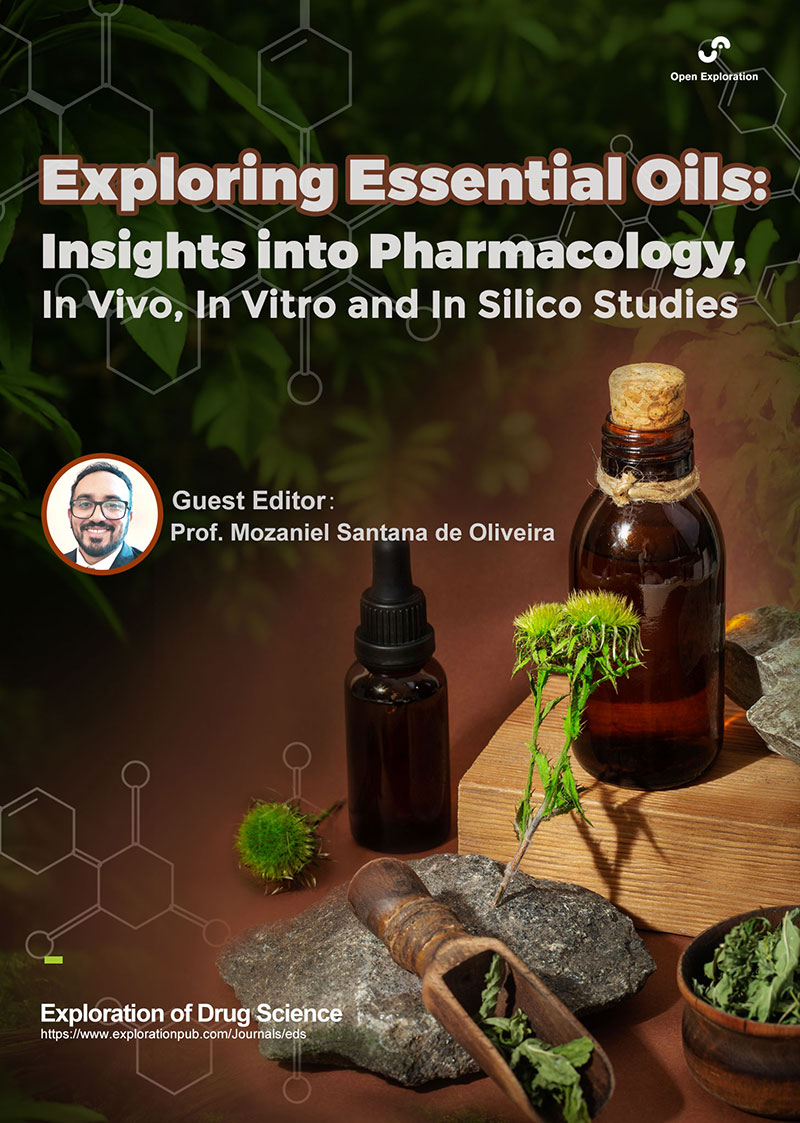-
 Special Issue Topic
Special Issue TopicEssential Oils: Insights into Pharmacology, In Vivo, In Vitro and In Silico Studies
Submission Deadline: October 31, 2025Guest Editor
Prof. Mozaniel Santana de Oliveira E-Mail
Federal University of Pará, Belem, Brazil
Research Keywords: medicinal Plants; pharmacological properties; bioactive compounds; therapeutic applications; natural products
About the Special Issue
Essential oils, complex mixtures of volatile compounds derived from plants, have gained significant attention in pharmacological research due to their diverse biological activities. These natural products exhibit a wide range of therapeutic properties, including antimicrobial, anti-inflammatory, antioxidant, antiproliferative, antifungal, antiviral, and neuroprotective effects. Their potential to modulate the immune system further enhances their applicability in treating various diseases. The study of essential oils has evolved beyond traditional approaches, incorporating advanced in vivo, in vitro, and in silico methodologies to elucidate their mechanisms of action, bioavailability, and safety profiles.
Recent advances in essential oil research have leveraged computational modeling and molecular docking studies to predict bioactive interactions, complementing experimental data obtained from cell cultures and animal models. These integrated approaches provide valuable insights into their pharmacokinetics and pharmacodynamics, paving the way for novel therapeutic applications. As interest in natural product-based medicine continues to grow, a comprehensive understanding of essential oils through multidisciplinary investigations is crucial for their effective utilization in pharmaceutical and clinical settings.
Keywords: antimicrobial; anti-inflammatory; antioxidant; antiproliferative; antifungal; antiviral; neuroprotective; immune system modulation
Call for Papers
Published Articles
-
-
Ongoing Special Issues
-
Completed Special Issues